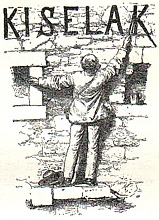Joseph Victor von Scheffel

Joseph Victor von Scheffel (16 February 1826 – 9 April 1886) was a German poet and novelist.
Biography
He was born at
After passing the state examination for admission to the judicial service, he graduated Doctor juris and for four years (1848–1852) held an official position at the town of
Returning home in 1853 he found his parents more than ever anxious that he should continue his legal career. But in 1854, defective eyesight incapacitated him; he quit the government service and took up his residence at

The first ideas for this work he got from the

For two years (1857–1859) Scheffel was custodian of the library of Prince Egon von
Legacy

1891
Works
His works, other than those already mentioned, are:
- Frau Aventiure. Lieder aus Heinrich von Ofterdingens Zeit (1863)
- Juniperus. Geschichte eines Kreuzfahrers (1866)
- Bergpsalmen (1870)
- Waldeinsamkeit (1880)
- Der Heini von Steier (1883)
- Hugideo, eine alte Geschichte (1884)
Volumes of Reisebilder (1887); Epistein (1892); and Briefe (1898) were published posthumously. Scheffel's Gesammelte Werke have been published in six volumes (1907).
Editions in English
- Ekkehard. A tale of the tenth century. Translated from the German by Sofie Delffs. In: German Authors. Collection of German Authors. (Tauchnitz edition.) vol. 21–22. 1867.
- Ekkehard. Translated by Helena Easson, Everyman's Library, 1940.
- Charles Godfrey Leland, Gaudeamus! Humorous Poems by Joseph Viktor von Scheffel, Ebook-Nr. 35848 on gutenberg.org
Notes
This article includes a list of general references, but it lacks sufficient corresponding inline citations. (January 2014) |
- ^ "Normannenzug, Op.32 (Bruch, Max)". imslp.org. Petrucci Music Library. Retrieved 10 December 2022.
- ^ Bruch, Max. Normannenzug, Gedicht aus "Ekkehard" von J. V. Scheffel für Bariton-Solo, einstimmigen Männerchor und Orchester. Op. 32. Breitkopf & Härtel. Retrieved 10 December 2022.
- ^ Introduction to German Poetry: A Dual-Language Book, Gustave Mathieu, Guy Stern Courier Dover Publications, 31.05.2012, including as well a translation
- ^ History of Mathematics: A Supplement C. Smoryński, Springer Science & Business Media, 2008
- ^ "Literarische Gesellschaft/Scheffelbund Karlsruhe". Archived from the original on 2014-03-23. Retrieved 2014-10-04.
References
- This article incorporates text from a publication now in the public domain: Chisholm, Hugh, ed. (1911). "Scheffel, Joseph Viktor von". Encyclopædia Britannica (11th ed.). Cambridge University Press. This article in turn cites:
- A. Ruhemann: Joseph Victor von Scheffel (1887)
- G. Zernin: Erinnerungen an Joseph Victor von Scheffel (1887)
- J. Proelß: Scheffels Leben und Dichten (1887)
- L. von Kobell: Scheffel und seine Frau (1901)
- E. Boerschel: J. V. von Scheffel und Emma Heim (1906).
Further reading
- Anton Breitner (Ed.): Scheffel-Gedenkbuch. Aus Anlaß der Gründung des Scheffel-Bundes in Österreich. Wien, Pest & Leipzig: A. Hartleben's Verlag 1890.
- Manfred Fuhrmann: Scheffels Erzählwerk: Bildungsbeflissenheit, Deutschtümelei, 1981. In: derselbe: Europas fremd gewordene Fundamente. Aktuelles zu Themen aus der Antike. Zürich: Artemis u. Winkler 1995. ISBN 3-7608-1122-1
- Reiner Haehling von Lanzenauer: Dichterjurist Scheffel. Karlsruhe: Verl. d. Ges. für Kulturhistor. Dokumentation e. V. 1988. (= Schriftenreihe des Rechtshistorischen Museums Karlsruhe; 6) ISBN 3-922596-20-7
- Günther Mahal: Joseph Viktor von Scheffel. Versuch einer Revision. Karlsruhe: Müller 1986. ISBN 3-7880-9731-0
- Joseph Victor von Scheffel (1826–1886). Ein deutscher Poet – gefeiert und geschmäht, hrsg. v. Walter Berschin. Ostfildern: Thorbecke 2003. ISBN 3-7995-0128-2
- Joseph Victor von Scheffel. Bibliographie 1945 bis 2001, zusammengestellt v. Stefan Schank. Karlsruhe: Scheffelbund 2001.
- Rolf Selbmann: Dichterberuf im bürgerlichen Zeitalter. Joseph Viktor von Scheffel und seine Literatur. Heidelberg: Winter 1982. (= Beiträge zur neueren Literaturgeschichte; F. 3, 58) ISBN 3-533-03200-0
- Ludwig Wolf: Der Anteil der Natur am Menschenleben bei Freytag und Scheffel. Amsterdam: Swets u. Zeitlinger 1968. (= Gießener Beiträge zur Deutschen Philologie; 9)
- Werner Wunderlich: "Medieval Images: Joseph Viktor von Scheffel's Novel Ekkehard and St. Gall." In: Medievalism in the Modern World. Essays in Honour of Leslie J. Workman, ed. Richard Utz and Tom Shippey (Turnhout: Brepols, 1998), pp. 193–225.
External links
- . Collier's New Encyclopedia. 1921.
- . The Nuttall Encyclopædia. 1907.
- Works by Joseph Viktor von Scheffel at zeno.org
- Works by Joseph Viktor von Scheffel at Project Gutenberg
- Works by or about Joseph Victor von Scheffel at Internet Archive
- Works by Joseph Victor von Scheffel at LibriVox (public domain audiobooks)

- Joseph Victor von Scheffel in the German National Library catalogue
